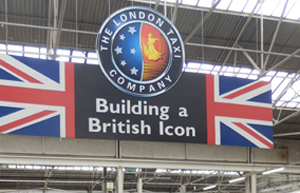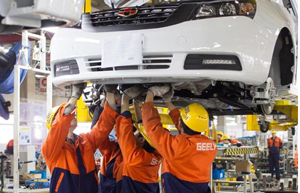Volvo goes upscale for wealthy buyers
(Agencies) Updated: 2014-08-19 09:11Product strategy head Lex Kerssemakers recounted how Li visited the Gothenburg headquarters about two years ago and sat in the back seat of a XC90 prototype.
"It doesn't work. I don't have enough space," Li said.
Kerssemakers told his team to take the front seats and put them in the rear, and take everything out so they could redesign it to create as luxurious an environment as possible.
"That would never have happened without a Chinese owner," he said.
"Two or three times a year he comes, he has an opinion," Kerssemakers said. "Why don't you try this, try that? Especially interior wise ... this is what my friends like, and they are rich customers."
CEO Samuelsson denied there had been any split and said the company had been largely given a free hand.
"Our traditional values are getting more and more important," Samuelsson said. "The one-baby policy makes safety important." He said the company would also emphasize in China, where poor air quality sometimes makes headlines, that its vehicles come fitted with air filters to keep the fumes outside.
Some analysts say taking on established German premium brands is a risky proposition for Li and Volvo.
Patrik Strom, assistant professor at the University of Gothenburg, said: "It is unproven as to whether customers will accept Swedish understatement as a luxury. But it is also risky to become too closely associated with China and lose that Swedish identity."
Sales figures will be the acid test. Without new models, sales in the United States slipped 10 percent to 61,000 units last year-roughly half of what they were a decade ago. Samuelsson is now aiming at selling 100,000 cars a year by 2016.
"The US is very critical," Samuelsson said. "Without a strong position in the US, we are not a global brand, we are not a premium brand. That has to work."
Volvo also sold 61,000 cars in China last year, but that was a jump of nearly 50 percent. Samuelsson said sales could beat its 80,000 target this year.
Volvo has for decades been hampered by currency headwinds in times of dollar weakness against the euro and Swedish crown as the cars it sells in the United States are made in Europe.
Samuelsson said the company would start exporting cars from China next year, mainly to the United States. US production has been discussed but was currently off the table, he said.
Volvo CFO Hans Oscarsson said moving into the premium range would eventually allow Volvo to reach margins of around 8 percent, compared with 1.6 percent last year. But for the moment, investment is the main task, so far funded in-house.
"The owners have been pretty patient with Volvo," said Oscarsson. "We are not profit-maximizing this company. We are not stressed by quarterly reports. Of course we could have done better results, but that would sacrifice the long term."
|
 |
 |
| Chinese firms keep UK auto industry ticking | Local carmakers emphasize CSR |
- Nippon Paint China speeds ahead in service-based era
- Myanmar implements economic zone in border town with China
- Overseas investors making hay from e-commerce bet
- Homegrown brands advised to stay relevant to customers
- Farmers climb bamboo ladder to riches
- Preferred shares may erode bank profits
- Mapping geography yields some surprises
- Ice bucket charity heats up Internet
















